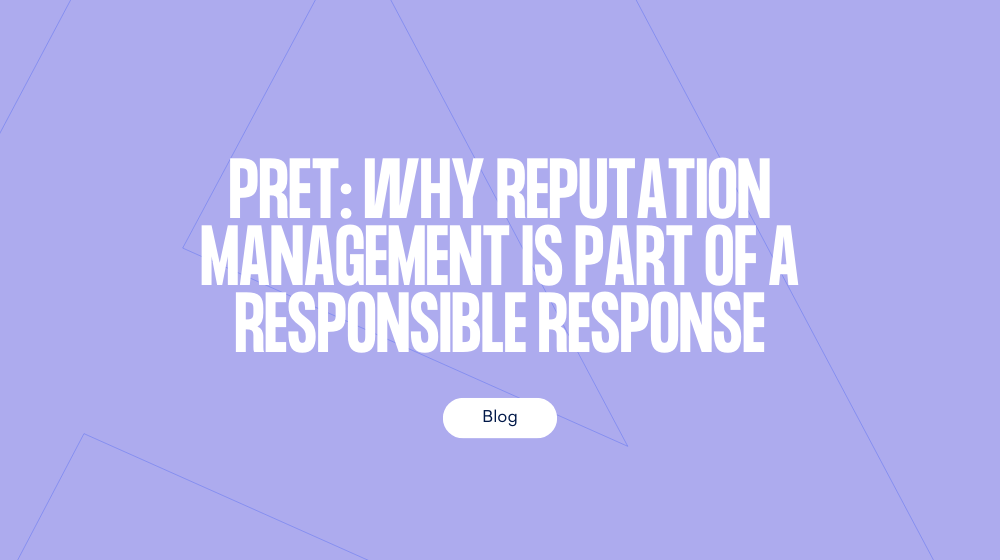What’s happened at Pret A Manger is tragic. No-one should die as a result of eating at a café. No-one at Pret would disagree with that of course, but two allergy-related deaths and multiple other allergy-related incidents reflect very badly. Rights and wrongs aside, the firm must now respond adequately – both in terms of the action it takes to minimise the risk of such incidents in future and to manage its reputation as it moves forward.
Talk of managing reputation at such a time might seem cynical, but there is a still a business to be run and a responsibility to stakeholders for it to be run as well as possible. Research has found that reputation can account for between 30% and 70% of a brand’s value, so you can see that it has to be a consideration. What’s important is that Pret’s reputation management activity reflects a genuine desire for improvement.
What hasn’t helped matters is that Pret hasn’t appeared proactive. As WE Communications managing director Ruth Allchurch points out in PR Week, the firm’s CEO Clive Schlee waited two years after the death of 15-year-old Ednan-Laperouse to send her family a condolence letter, only a matter of weeks before the coroner’s inquest. What’s more, the numerous other allergy-related incidents at the chain do not appear to have spurred adequate action.
There are some basic tenets of reputation management that could have been better observed here. Firstly, be prepared. Any comms department should be aware of what the most likely pitfalls for its brand are and have appropriate responses ready to go in the event that any of them should arise. The reality is that food-related illnesses or deaths at a major café chain are an unfortunate possibility. Things can always go wrong, but a good, prompt response can at least minimise hardship for all concerned.
Secondly, don’t hide. Even if you don’t know all the details of what has happened, you need to own any issues and do so at an appropriate level. Although questions were raised about its initial response, Pret has since committed to improving the food labelling of its products, with Schlee, as CEO, saying: "I hope these measures set us on course to drive change in the industry so people with allergies are as protected and informed as possible. Nothing is more important to Pret right now." The approach is simple: recognise, regret, resolve. Silence and confusion only make matters worse.
Finally, and most importantly of all, be genuine. When problems arise, they are not merely inconveniences to be solved and got rid of. They impact peoples’ lives and it’s a brand’s responsibility to try and understand the different perspectives involved and what can be done to help.




